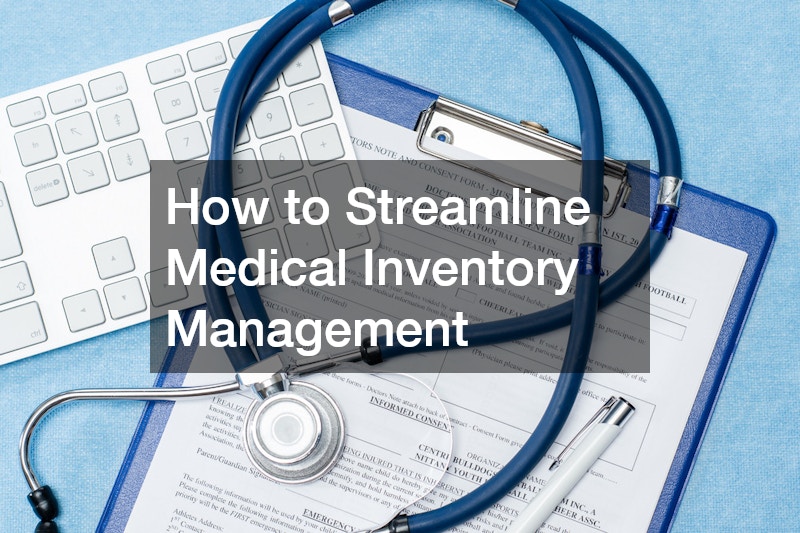In the realm of healthcare, effective medical inventory management is crucial for ensuring that patients receive the highest standard of care. The intricacies involved in maintaining an optimal stock of medical supplies and equipment are often overlooked, yet they hold significant importance in the operational efficacy of healthcare facilities. Challenges such as overstocking, understocking, and expired supplies can lead to increased operational costs and jeopardize patient safety.
Inefficient inventory management is not merely an administrative issue but a critical aspect that directly impacts the quality of healthcare services. Therefore, implementing a streamlined system for inventory management is a vital step for healthcare organizations aiming to enhance patient care and operational efficiency.
What Are the Key Components of Effective Medical Inventory Management?
An efficient medical inventory management system is founded on several key components. Firstly, accurate and real-time data collection is essential for understanding current inventory levels and predicting future demands. This involves the use of barcode scanners and RFID technology to monitor supplies and ensure their availability when needed. Effective categorization and stock labeling also play a crucial role in maintaining order and accessibility within the inventory. By having a structured system in place, staff can quickly identify and retrieve necessary items, reducing time wastage and improving overall workflow efficiency.
Furthermore, effective inventory management should include a robust system for tracking and monitoring usage trends. Regular usage reports help in identifying patterns and preventing both overstocking and stockouts. By analyzing these trends, healthcare administrators can make informed decisions about purchasing and stock levels, optimizing resource allocation. A sustainable management practice should also include regularly scheduled audits to verify stock levels against recorded data, ensuring accountability and minimizing discrepancies. This proactive approach not only averts potential crises but also contributes to cost savings and resource optimization.
What Technologies Can Be Used to Streamline Inventory Management?
The integration of advanced technologies has revolutionized medical inventory management, making it more streamlined and efficient. One of the primary technologies employed is the use of inventory management software that automates various tasks such as data entry, stock monitoring, and order processing. These software solutions often include features like alerts for low stock levels, expiration tracking, and automated reorder points, thereby reducing human error and enhancing operational accuracy. Additionally, cloud-based systems provide scalable solutions that facilitate real-time access to inventory data across multiple locations within a healthcare network. By leveraging these smart technologies, healthcare providers can ensure the seamless availability of essential supplies.
Moreover, emerging technologies such as Internet of Things (IoT) devices are playing a pivotal role in transforming inventory management practices. IoT-enabled devices can continuously track inventory levels, monitor environmental conditions like temperature for sensitive items, and even predict demand fluctuations through AI-powered analytics. For instance, RFID technology is extensively used to track the movement and status of medical supplies throughout the facility. This real-time visibility and control help in preventing stockouts, ensuring compliance, and improving overall supply chain efficiency. The implementation of IoT-driven solutions represents a significant advancement towards achieving more intelligent and responsive inventory management systems.
How Can Staff Training Improve Inventory Management Practices?
Staff training is pivotal in enhancing medical inventory management practices, ensuring that employees are aware of the best practices and technological tools available to them. Training programs should focus on familiarizing staff with inventory management software and other tech tools, demonstrating how to effectively use them in daily operations. Comprehensive training also includes aspects such as proper stock handling procedures, item categorization, and replenishment protocols. By equipping staff with the necessary skills and knowledge, healthcare facilities can minimize errors and enhance the overall efficiency of inventory management processes. Continuous education and refresher courses ensure that personnel remain updated with the latest practices and technologies in the field.

In addition to technical training, soft skills and communication are also integral aspects that can significantly impact inventory management outcomes. Ensuring that staff members develop strong communication skills facilitates better coordination between different departments, ultimately leading to more cohesive inventory management efforts. Furthermore, training should instill problem-solving abilities that empower staff to address and rectify inventory-related issues promptly. By fostering a proactive approach among staff, healthcare organizations can effectively mitigate risks that arise from inventory mishaps or logistical challenges. This constructive atmosphere not only contributes to operational efficiency but also enhances the overall morale and productivity of the workforce.
Effective medical inventory management is paramount in ensuring the seamless operation of healthcare facilities, directly impacting the quality of patient care. By focusing on key components such as data accuracy, trend monitoring, and robust protocols, healthcare organizations can optimize their inventory management processes. The integration of modern technologies like inventory management software, IoT, and AI further streamlines these practices, significantly enhancing operational efficiency and cost-effectiveness. Additionally, comprehensive staff training is essential in equipping employees with the skills and knowledge necessary for effective inventory management. By adopting a holistic approach to inventory management, healthcare facilities can significantly enhance their operational capabilities, ultimately contributing to improved patient outcomes.
